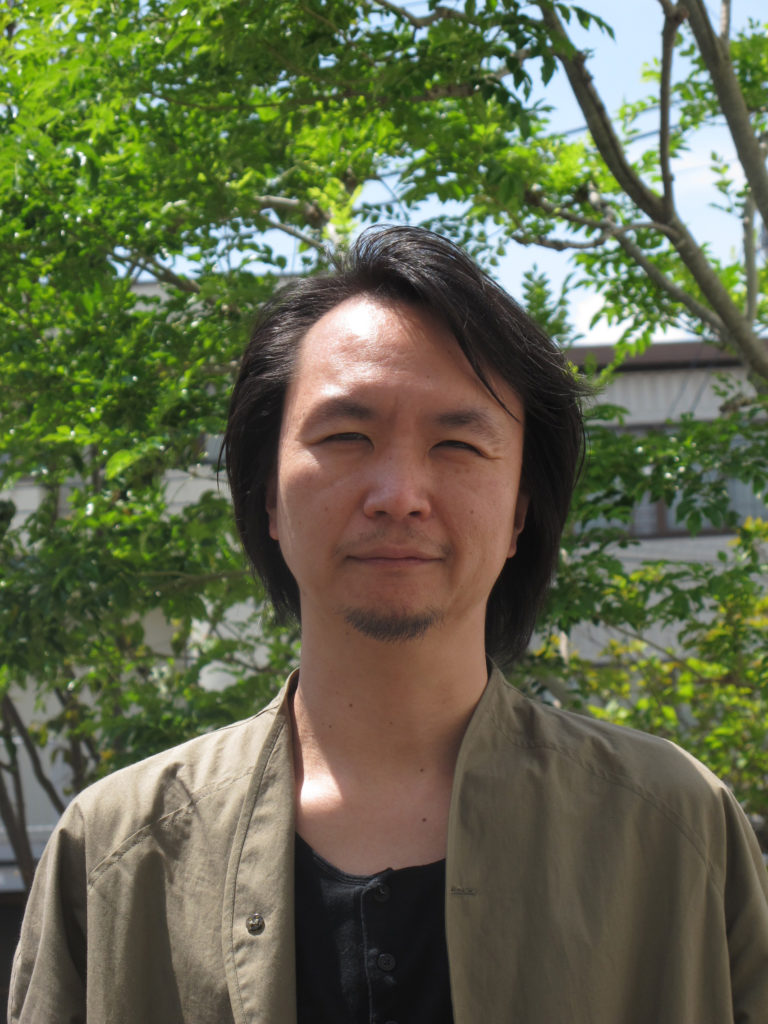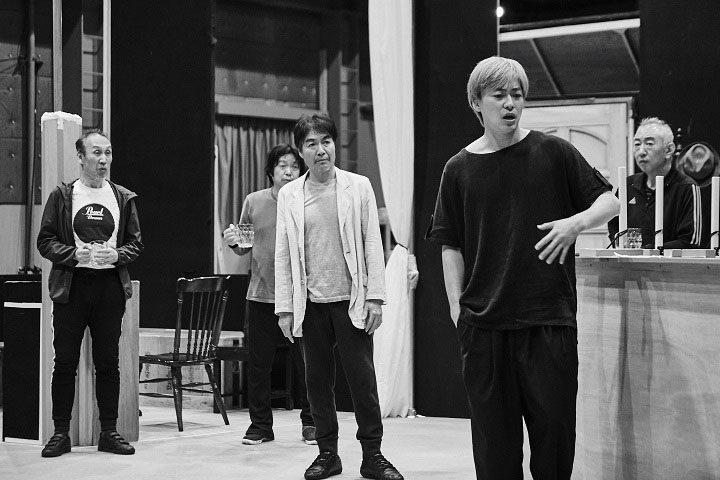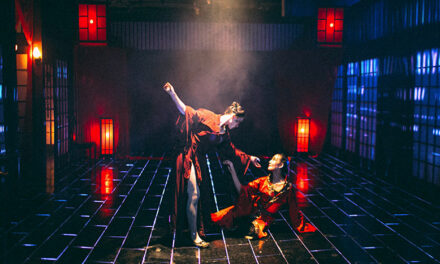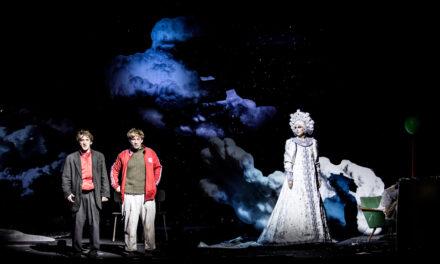For casual fans of film, the name Martin McDonagh only became familiar after the movie he wrote, directed, and produced, Three Billboards Outside Ebbing, Missouri, became the talk of this year’s awards season.
Actors Frances McDormand and Sam Rockwell both won Oscars for their performances in it, while McDonagh (a previous Oscar winner for the 2004 short film Six Shooter) collected Golden Globes and BAFTAs.
Although some filmgoers were likely surprised by the awful underbelly to a deceiving portrait of normality exposed in both Ebbing and Six Shooter, anyone familiar with the British playwright’s theater work would have recognized McDonagh’s signature hallmarks of dark humor, characters’ pent-up rage about life, and eruptions of feral violence.
The dramatist’s successful 2015 play, Hangmen, is now set to open in Saitama from May 12 ahead of Tokyo and nationwide runs. It will be performed with an all-Japanese cast and directed by Keishi Nagatsuka, 43, who also acts in the role of Clegg, a local journalist.
“In 2003, when I directed The Lieutenant Of Inishmore (McDonagh’s dark slapstick piece about a gangster’s missing cat), he came to see it and was so pleased with my gory and bizarre approach,” Nagatsuka tells The Japan Times from a rehearsal studio in Tokyo’s Morishita neighborhood. “Actually, some audience members left their seats—which is very rare in Japan—but it became the talk of theater lovers and many people said they enjoyed that vivid, translated play and laughed openly at its black humor.”
Born into an Irish family in south London, McDonagh shot to prominence in Britain in 1996 with his tragicomic The Beauty Queen Of Leenane about a dysfunctional mother and daughter in a village in Ireland. With that and his next four plays all set in Ireland as well, he was soon being praised on both sides of the Atlantic and hailed as a standard-bearer of a new generation of dramatists
Then along came his 2003 masterpiece The Pillowman, a horrific story set in a totalitarian state—after which he abruptly shifted his focus to the big screen for more than a decade before returning to the stage in 2015 with Hangmen, which earned five-star reviews.
Set in 1965, the play largely takes place in a pub in a gritty, northern English town near Manchester that’s run by one of Britain’s official hangmen, Harry Wade (played here by Tetsushi Tanaka), and his wife Alice (Natsuko Akiyama).
At this point, a little context is unavoidable, since hangings in Japan are currently conducted by having several prison warders simultaneously press buttons—of which only one is wired to release the trapdoor. In contrast, before capital punishment was abolished in Great Britain in 1965, authorized freelance hangmen, whose names were freely reported, and their assistants were summoned into a prison with to set the noose and do the deed.
Hence it’s hardly surprising that Harry’s pub (like ones run in that area by real executioners named Harry Allen and Albert Pierrepoint) occasionally attracts customers hoping to hear about his other job. One of these who turns up one day is a dapper young man named Mooney (Shunsuke Daito). In the British version, his accent betrays him as a scorned Southerner, and he further disturbs the clannish locals by flirting with Harry’s daughter, Shirley (Miu Tomita).
Next day, Shirley is missing and Mooney is suspected of doing her harm—but when Harry presses him to confess, McDonagh’s drama reaches its stunningly powerful climax.
Indeed, as the playwright said a few years ago regarding Hangmen: “This is about a big subject—capital punishment and miscarriages of justice.”
So in today’s Japan, where executions still happen, how will Nagatsuka tackle those issues through his direction?
Already, of course, the Tokyo native is something of an old hand at McDonagh, having followed his version of The Lieutenant Of Inishmore with stagings of The Pillowman in 2004 and The Beauty Queen Of Leenane three years later, before heading to London to study at the National Theatre in 2008.
Despite that, however, and the understanding he’s gained of McDonagh’s use of violence and the way he convinces audiences to feel its presence, Nagatsuka still says Hangmen presents “a whole new challenge.”
“Compared with those earlier works, Hangmen has more unexplained blanks and many things aren’t clear until the end,” he says. “So I can’t direct it in a straight, logical way because I think it relies more on the audience’s imagination.”
In addition to the nonlinear narrative, Nagatsuka also encountered cultural barriers.
“First, it’s impossible to show the difference between the North and South of England through the use of Japanese dialects because they don’t convey the same class and cultural associations as the ones in England,” he says. “So I don’t have anyone using the Kansai dialect, for example, but I try to expose the difference between Mooney and the others through his urbane attitudes and the incongruous expressions he uses.
“Second, Japanese audiences don’t laugh at discrimination jokes; what’s acceptable humor in each country is different.”
Closing in on the crux of this production, Nagatsuka says the subject matter is already “very pointed and controversial.”
“Personally, I’m definitely against any system of capital punishment due to the risk of wrongful conviction. Also, I don’t agree with taking someone’s life for any reason,” he says. “On the other hand, many Japanese are probably simply not aware, and would find it hard to believe, that Britain stopped hanging people more than 50 years ago, so it’s worth doing this play to tell that story here.”
In addition, Nagatsuka describes how the topic of execution by hanging is hidden in Japan, so no one thinks about the job of the executioners or the effects it can have on them such as the play shows.
“Consequently, I think that staging this play here questions the whole way the mainstream tries to eliminate outsiders or minorities and punish, bully, or exclude people and ideas that don’t fit,” Nagatsuka says. “Through Hangmen I’d like ask people whether it’s alright for our society to be run like this.”

Adaptation: In adapting Martin McDonagh’s 2015 play Hangmen for a Japanese audience, director Keishi Nagatsuka has had to consider various cultural differences with regards to humor and social norms. | NOBUKO TANAKA
Hangmen will be performed at Saitama Arts Theater in Saitama City on May 12 and 13. It then heads to Setagaya Public Theatre in Tokyo from May 16 to 27 before moving to Toyohashi, Aichi Prefecture (June 9 and 10), Kyoto (June 15-17) and Kitakyushu, Fukuoka (June 21 and 22). For more information, visit www.parco-play.com.
This article originally appeared in Japan Times on May 8, 2018, and has been reposted with permission.
This post was written by the author in their personal capacity.The opinions expressed in this article are the author’s own and do not reflect the view of The Theatre Times, their staff or collaborators.
This post was written by Nobuko Tanaka.
The views expressed here belong to the author and do not necessarily reflect our views and opinions.


















